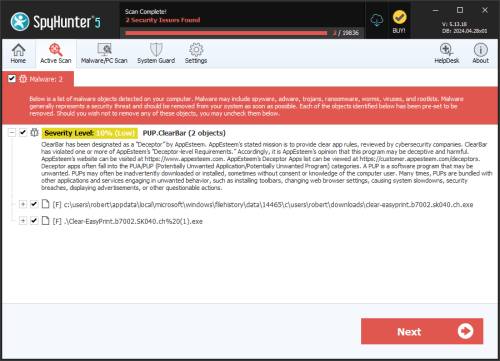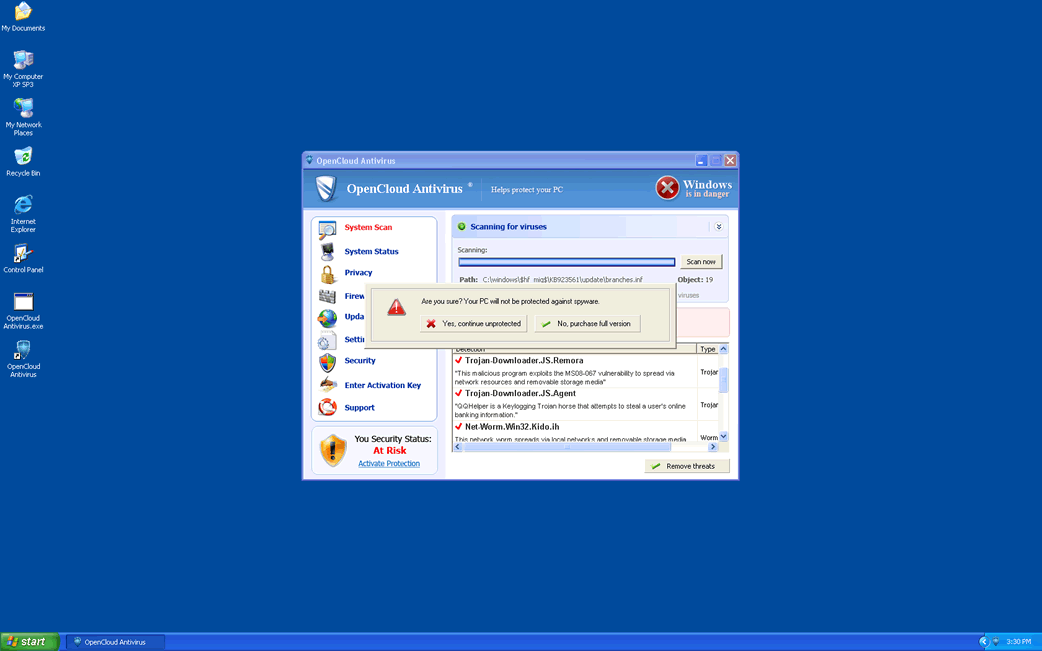VersionTrust
Upon reviewing the VersionTrust application, infosec researchers have found that it exhibits typical adware behavior. The app is designed to run intrusive advertisement campaigns. More specifically, VersionTrust is targeted at Mac devices. It is not uncommon for users to unintentionally install adware without being fully aware of its presence or the consequences it may entail. The experts also warn that VersionTrust is an app belonging to the AdLoad malware family.
VersionTrust is Likely to Expose Users to Privacy and Security Risks
VersionTrust has the capability to display a wide range of advertisements across different formats, including pop-up ads, banner ads, in-text ads, interstitial ads, and video ads. These advertisements can appear on web pages, within applications, or even directly on the desktop.
The ads presented by VersionTrust carry risks for users, as they can lead individuals to websites hosting malware or engaging in phishing scams. These scams aim to trick users into sharing personal information or downloading harmful software. Additionally, these ads might redirect users to pages promoting counterfeit products or fraudulent services, intending to extract money or personal data from unsuspecting individuals.
Furthermore, VersionTrust advertisements have the potential to redirect users to adult content websites or other pages containing explicit material. Some of these ads are designed to initiate scripts that trigger unwanted downloads or installations on users' devices. Therefore, it's strongly advised to be cautious and avoid interacting with such ads.
Apart from displaying unwanted and dubious advertisements, VersionTrust may also collect various types of user information. This can include browsing history, search queries, IP addresses, geolocation data, email addresses, usernames, and even financial information. Users should be aware of the privacy risks associated with interacting with VersionTrust and take necessary precautions to safeguard their personal data.
Adware and PUPs (Potentially Unwanted Programs) Frequently Exploit Questionable Distribution Practices
Adware (advertising-supported software) and PUPs often employ deceptive or questionable distribution practices to install themselves on users' devices silently. Here are some common methods they use:
- Bundling with Freeware or Shareware: Adware and PUPs are frequently bundled with free software or applications that users download from the internet. When users install the desired software, they unknowingly also install the adware or PUP as part of the package. The installation process may not clearly disclose the presence of additional software, leading users to accept the installation unintentionally.
- Misleading Installation Prompts: Adware and PUPs may use misleading installation prompts that trick users into agreeing to their installation. For example, the installer may use confusing language, pre-selected checkboxes, or deceptive buttons that disguise the installation of additional software.
- Fake Software Updates: Adware and PUPs may disguise themselves as legitimate software updates or plugins. Users may encounter pop-up notifications or fake websites claiming that certain software (such as Flash Player or Java) needs to be updated. Clicking on these prompts can lead to the installation of adware or PUPs instead of the intended update.
- Malvertising: Adware and PUPs can be distributed through rogue advertising (malvertising) campaigns. Users may encounter deceptive ads that prompt them to click or download something, which then installs unwanted software on their devices.
- Browser Extensions or Add-ons: Adware and PUPs may be disguised as browser extensions or add-ons that claim to offer useful features (such as ad-blocking or enhanced browsing). Once installed, these extensions can display intrusive ads or collect browsing data without users' consent.
- File-Sharing Networks: Adware and PUPs may be spread via Peer-to-Peer (P2P) file-sharing networks. PC users who download files from these networks may unknowingly download additional adware or PUPs along with the desired content.
To protect against the silent installation of adware and PUPs, users should be careful when downloading software and always opt for custom or advanced installation options. Additionally, keeping anti-malware software up to date and avoiding clicking on suspicious ads or prompts can help prevent unwanted software installations.


